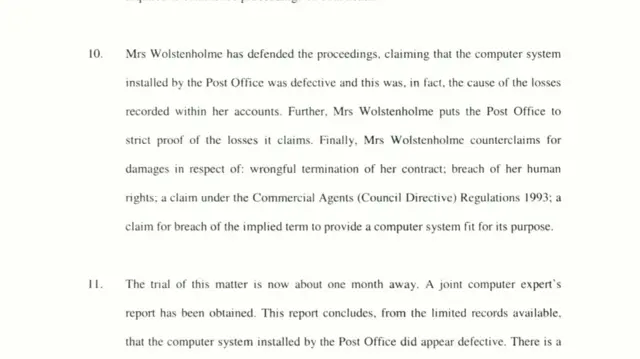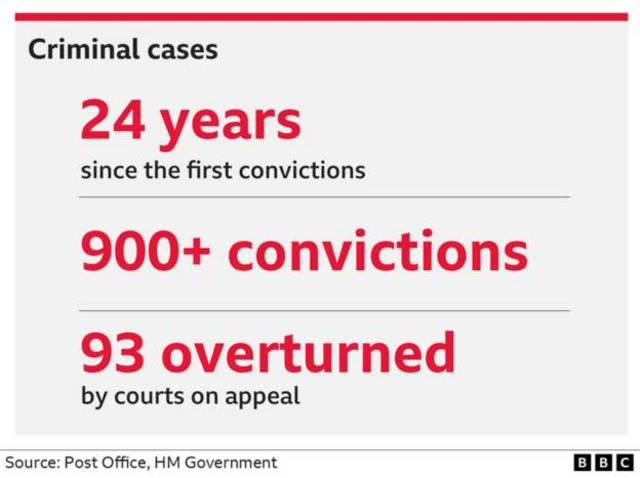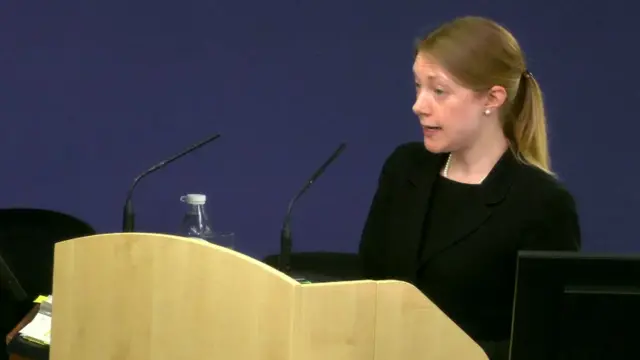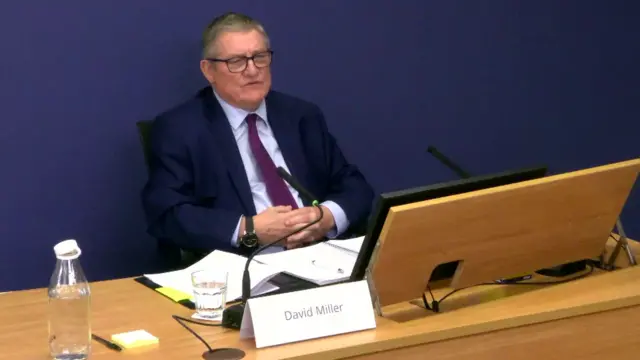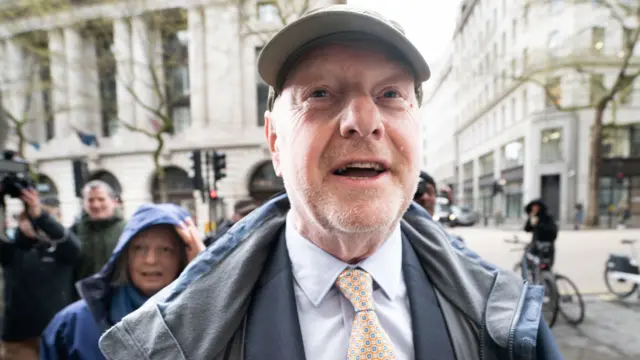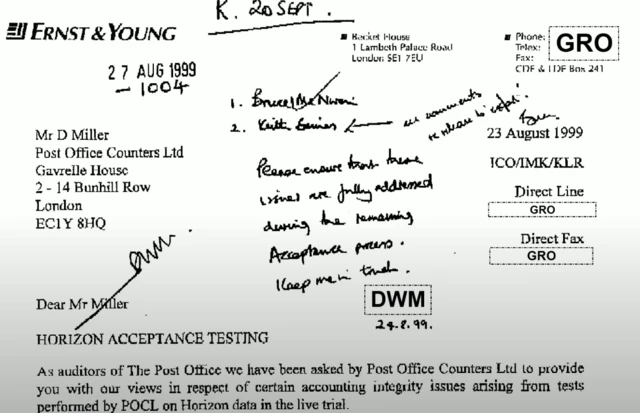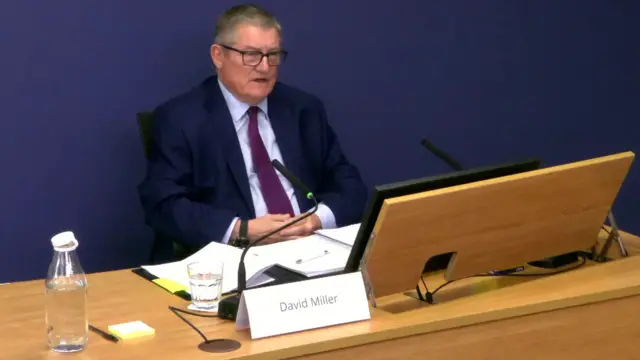Miller did not read expert advice about Horizon failures in casepublished at 12:38 BST 16 April 2024
Continuing to query Miller over about sub-postmistress Wolstenholme's case, Price looks at a 2004 meeting between Miller and former head of security Tony Marsh.
In the meeting, Miller recalls Marsh saying there was an "issue with the expert advice" but that they should "cut our losses and pay up".
Miller also recalls asking Marsh if he was saying there were issues with Horizon, but Marsh said no.
"I got the impression it was a one-off case," Miller says in his evidence.
He signed off on the settlement at this meeting, without reading the counsel's advice or requesting the expert's opinion.
When asked why he didn't ask to see this advice, after discussing it with Marsh, he says: "This came to me as an on-the-day issue," and he trusted the senior person who brought him the case.
"I regret, obviously, very much not having said stop let's review what's actually going on here, but I didn't."
